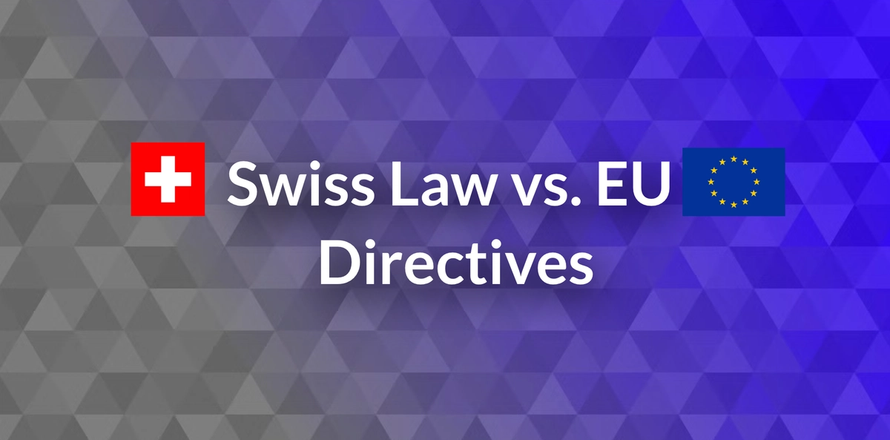Swiss Law vs. EU Directives: Key Differences in Asset Recovery and Sanctions Enforcement

In the ever-evolving landscape of international finance and regulatory compliance, understanding the nuances between national laws and regional directives is crucial. Recently, the Swiss Government, through the Federal Council, released comprehensive reports highlighting the differences between Swiss legislation and two significant EU Directives: Directive (EU) 2024/1260 on asset recovery and confiscation, and Directive (EU) 2024/1226 concerning the definition of criminal offences and penalties for violating Union restrictive measures.
1. Directive (EU) 2024/1260 on Asset Recovery and Confiscation
Implementation Deadline: 23 November 2026
Swiss Law Comparison: The Swiss report acknowledges that its current legal framework for asset recovery and confiscation aligns closely with the EU Directive 2024/1260. However, several distinctions were identified:
- Organizational Structure: While both Swiss law and the EU Directive aim to streamline asset recovery processes, the organization of bodies responsible for the disgorgement of illicit assets differs. Switzerland maintains a unique structure that may not mirror the EU’s centralized approach.
- Types of Confiscation: The Swiss legal system provides for various types of confiscation, some of which are not explicitly covered under the EU Directive. This includes specific provisions tailored to Switzerland’s financial ecosystem.
- Strategic Framework: The strategic approach to asset disgorgement and confiscation in Switzerland incorporates tailored strategies that address the country’s specific financial and regulatory environment.
For a detailed analysis, you can access the full report here.
2. Directive (EU) 2024/1226 on Criminal Offences and Penalties for Violating Union Restrictive Measures
Implementation Deadline: 20 May 2025
Swiss Law Comparison: The report concludes that Switzerland’s legal foundations are largely comparable to those of the EU Directive 2024/1226, particularly in prosecuting sanctions violations. Key similarities and differences include:
- Legal Framework: Both Switzerland and the EU provide robust frameworks allowing the prosecution of sanctions violations, with penalties ranging from fines to imprisonment. Switzerland’s Federal Act on the Implementation of International Sanctions (Embargo Act) has been the cornerstone of its sanctions enforcement for over two decades.
- Penalties for Individuals: Similar to the EU, Swiss law imposes severe penalties on individuals, including imprisonment for up to five years, substantial monetary fines, and fines for negligent offenses.
- Corporate Penalties: A notable difference lies in the penalties imposed on companies. The EU Directive introduces specific punitive measures for corporate entities, whereas Swiss law currently has distinct provisions that may not fully align with the EU’s approach.
These differences highlight the importance of harmonizing national laws with international standards to ensure effective enforcement and compliance.
Implications for Businesses and Financial Institutions
For businesses operating across Switzerland and the EU, understanding these legal distinctions is vital for ensuring compliance and mitigating risks associated with asset recovery and sanctions violations. Aligning corporate policies with both Swiss law and EU directives can help in navigating the complexities of international regulatory environments.
Conclusion
Switzerland’s proactive approach in assessing and aligning its laws with EU directives underscores its commitment to maintaining a transparent and compliant financial system. As the implementation deadlines approach, businesses and financial institutions must stay informed and adapt to these legal changes to uphold the highest standards of compliance and integrity.
At ComplyWiser, we specialize in guiding organizations through such regulatory landscapes, ensuring seamless compliance with both national and international directives. Contact us to learn how we can support your compliance strategies.